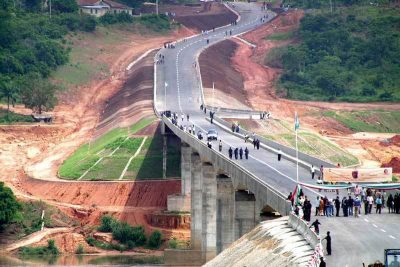Nigeria currently spends 10 billion dollars (N1.9 trillion) per annum on infrastructure, according to the National Integrated Infrastructure Master Plan (NIIMP) report issued in Abuja on Thursday.
The document, released by the National Planning Commission, stated that about 50 per cent of the funding was provided by the private sector.
It stated that bulk of the spending was concentrated in Information Communication Technology (ICT) at 28 per cent; transport 23 per cent and energy recorded 19 per cent.
The report said that the current spending on infrastructure was low, adding that it, however, increased between 2010-2012.
It said that the country’s infrastructure had long been a bottleneck for economic growth.
The report said that the country was underdeveloped, compared to that of other fast-growing emerging countries.
It also stated that road density in Nigeria was only about a fifth of that of India.
The report said that Nigerian population’s access to sanitation and mobile telecommunication both compared unfavourably with Brazil and South Africa.
It said Nigeria’s five hospital beds per thousand people ratio was also lower than India’s (at nine) and much lower than South Africa’s 28 beds per thousand people.
“The effect of weak infrastructure is most striking in the energy sector as Nigeria’s per capita power consumption of 136kWh per annum is less than 3 per cent of South Africa’s 4,803kWh,“ the report said.
It stated that the report was developed to boost the nation’s stock of infrastructure over the next 30 years.
According to the report, Nigeria requires three trillion dollars to close infrastructure gap estimated to be about 20-25 per cent of Gross Domestic Product (GDP).
“Based on international benchmarks, Nigeria’s core infrastructure stock of gap is estimated to be about 20-25 per cent of GDP.
“If non-core infrastructure such as social housing, security, mining and agriculture is included, the gap is even wider,” it said.

